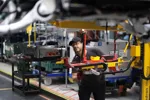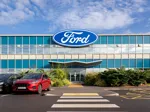Hackney borough council is hoping to be able to use a B20 or B30 blend of biodiesel on part of its 170-strong LCV fleet by the end of 2015.
However, that depends on the viability of getting a van manufacturer that is happy to entertain a biodiesel blend.
Norman Harding, corporate fleet manager at the London Borough of Hackney, will be renewing the leased fleet shortly, but admits most manufacturers aren’t persuaded.
He told Fleet News: “Citroën will allow a B30 blend on all of its vehicles, but so far that’s the only one interested in conducting a trial.”
The use of biodiesel above a B5 blend is frowned upon by some manufacturers, with fleets running the risk of invalidating warranties.
However, the Environment Agency has been successfully running a B50 blend during the summer months, and a B25 blend at all other times, in a variety of commercial vehicles, including the Citroën Berlingo, Mitsubishi Outlander and Ford Transit Connect.
Harding says he will continue speaking to manufacturers, but is confident his trial will get underway by the end of 2015.
It comes as council fleets are being asked to help combat London’s ‘fatberg’ (clumps of solidified grease and oil that block the sewage system) problem and cut their CO2 emissions by fuelling vehicles with biodiesel.
The Greater London Authority (GLA) wants to help create a demand for a locally-produced renewable fuel supply by persuading council fleets in the capital to make the switch.
The biodiesel would be made from used cooking oils (UCOs) and fats, oils and greases (FOGs) from commercial and domestic sources in the south east. “This is an opportunity that could deliver both waste and carbon savings,” said a GLA spokesman.
“The key for us is to generate demand. If you can generate demand for biodiesel the market will respond.”
Some of London’s buses are already using a blend of 80% regular diesel and 20% biodiesel (B20) after successful trials, and Transport for London (TfL) is aiming for all buses in the capital to be operating on a B20 blend by 2020. The GLA spokesman added: “We’re now ready to turn our attention to the local authorities within London.”
There are 32 boroughs within the Greater London Authority area. Each operate their own municipal fleet, but very few use biodiesel.
The spokesman continued: “We held an event at City Hall at the beginning of January, where we invited fleet managers from the boroughs to talk about the issues and challenges involved in adopting biodiesel.
“It was a great success. They were able to hear from fleets, which are already using biodiesel, and from manufacturers, who were able to give technical advice.
“We’re now in the process of developing a document that will offer practical advice to fleets on using a B20 blend, which we aim to distribute in the next few months.”
Harding, who is already running 38 trucks on a 100% biodiesel blend, shared his experience of the fuel at the event in London last month.
“The response from other fleet managers was very positive,” said Harding. “It alleviated a lot of the fears people have about the use of biodiesel, but whether they choose to do a trial depends on their site, fleet and type of operation.”
To better understand the market for biodiesel produced from UCOs and FOGs, the GLA commissioned a report, the findings of which were published in September, 2013. It confirmed the viability of biodiesel production and also its environmental benefits within the capital.
The GLA spokesman explained: “We have seen an opportunity, if we can increase demand significantly within London, to attract some infrastructure into the capital. That could be a refinery or a blending facility, or a pre-processing facility.
“There are a number of elements to biodiesel production that could happen in London.”
UCOs and FOGs are regularly dumped down drains in the capital, creating fatbergs. However, the problem could become a thing of the past if the GLA initiative takes off.

















Glenn Ewen - 25/02/2015 13:20
Still doesn't get round the particulate problem. All re-arranging the deck-chairs on the Titanic and congratulating themselves on their "affirmative" action. GET RID OF DIESEL.